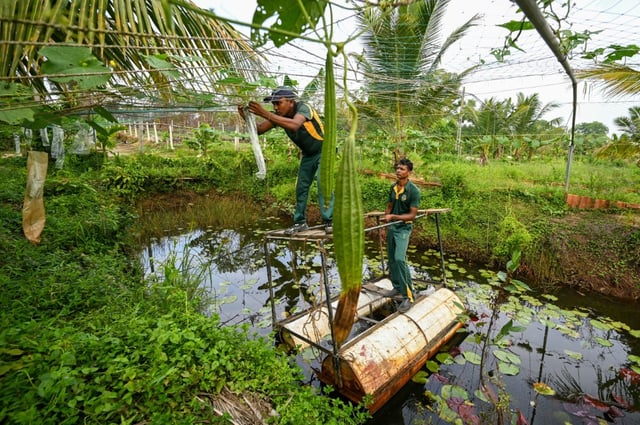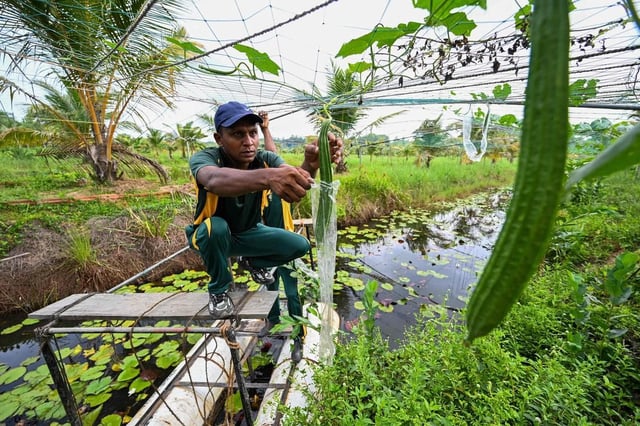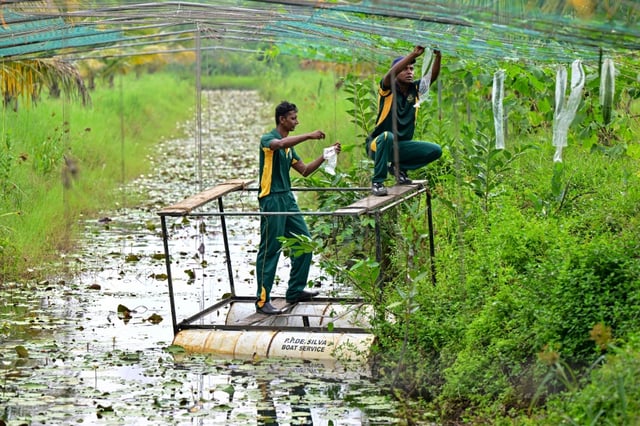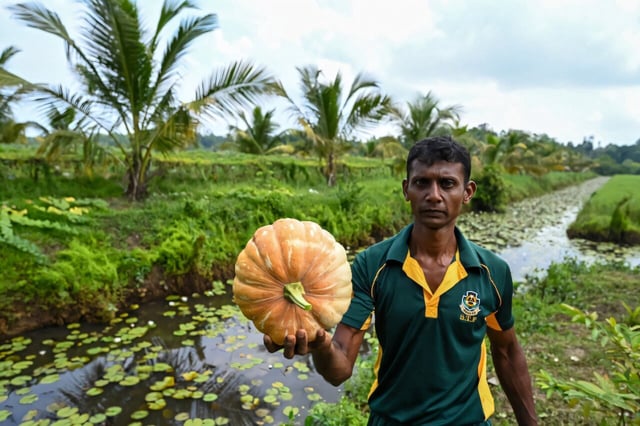Overview
- The sorjan pilot project in Katukurunda, launched in 2022, is actively cultivating 360 coconut trees, vegetables, and fish ponds on previously salt-damaged land.
- Sri Lanka has allocated 400 hectares of abandoned farmland for reclamation, with plans to expand to 1,000 hectares within two years for coconut cultivation.
- Salinity affects 223,000 hectares of arable land in Sri Lanka, roughly 8% of the total, with half of this area consisting of rice paddies critical to food security.
- Researchers are testing saline-resistant rice varieties and have reported promising results for crops resilient to salinity and flooding conditions.
- A recent study found that half of rice farmers near the Bentota river estuary lost all income due to saltwater contamination, underscoring the socioeconomic stakes of the issue.



